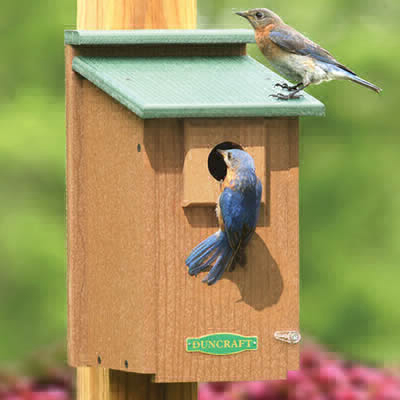New peregrine falcon family in Warren Michigan
A new peregrine falcon, an endangered species in Michigan, has arrived in its family’s new home atop the Campbell Ewald Building on VanDyke in Warren. The strong chick is thriving under the care of its attentive parents.
While sightings of peregrine falcons have been reported on and off near the Campbell Ewald Building since 2004, the falcons just took up residence this year.
“It’s like Christmas,” said Campbell Ewald Building Manager Paul Lenney. Lenney installed a nest box and a nest camera atop the building in 2006, hoping to entice a pair of falcons. His patience and hospitality paid off. Just seven years later, the falcons have arrived.
Peregrine falcons incubate their eggs for 29-33 days, and the chicks hatch covered in fuzzy white down. The chicks eat voraciously, and in just three weeks will weigh 10 times what they weigh at hatching. After about 40 days in the nest, the young birds will take flight.
Before the chick flies, Department of Natural Resources employees will place small metal bands on its legs in an effort to track the survival and movement of the young bird. The banding will take place June 5, 2013.
Tracking the peregrine falcons is important as the birds recover from major population decline. In the 1960s the population took a nosedive due to the use of DDT. The shells of peregrine falcon eggs became extremely fragile, and few youngsters hatched. By 1968, the entire peregrine falcon population east of the Mississippi was gone.
Michigan began its peregrine recovery efforts in 1986. In 1993, the peregrines in Michigan began reproducing successfully. By 2012, there were 20 nest sites in Michigan, with 13 successful nests.
The art department at Campbell Ewald set up a website where anyone can see the peregrine family as it grows: http://cefalcons.tumblr.com/. “People from all over the world are tuning in to watch”, said Campbell Ewald Digital Art Director Dimitri Alexander.






